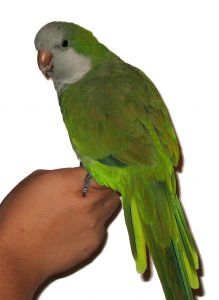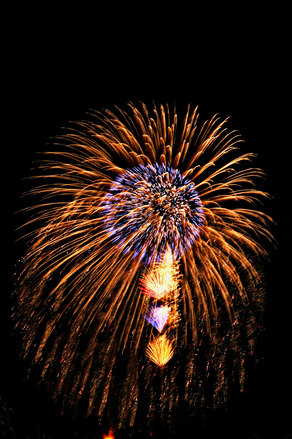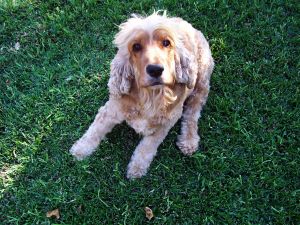 Pet birds are surprisingly delicate, and many things in your home can actually pose a serious threat to their health and wellbeing. Continue reading to learn about 8 such hazards so that you can remove them from your birds’ environment to ensure their safety and longevity.
Pet birds are surprisingly delicate, and many things in your home can actually pose a serious threat to their health and wellbeing. Continue reading to learn about 8 such hazards so that you can remove them from your birds’ environment to ensure their safety and longevity.
1. Foods Known to Be Toxic to Birds: While your pet birds will love being fed fresh foods, including fruits, vegetables, and nuts, in addition to their favorite seeds, there are certain items that should be off-limits. These include garlic, avocado, coffee, tea, chocolate, salt, alcohol, rhubarb, and the leaves and stems of tomatoes.
2. Non-Stick Cookware: While you may love your non-stick cookware, which often contains Teflon, the fumes produced are toxic to birds. Oven cleaners, self-cleaning ovens, and other chemical-based cleaners that are used throughout the kitchen can also be dangerous. Stick with stainless steel or ceramic cookware, as well as natural non-stick options, and make sure your bird is kept out of the kitchen.
3. Artificial Fragrances: Artificial fragrances can be toxic to people and their pets, especially birds. Avoid all types of air fresheners and scented candles. The artificial fragrances given off by these products can cause respiratory irritation and it can also adversely affect the central nervous system of birds. Be wary of essential oils, too, as they can be quite potent and dangerous to a small bird.
4. Zinc and Lead: Metals like lead and zinc pose a great danger to birds, so make sure your pet’s cage, food and water bowls, and toys are made of safe materials. If you let your bird spend time outside of the cage, make sure you always keep on eye on him so that he doesn’t start chewing on items he isn’t supposed to that could contain these metals. Even small amounts ingested over time are dangerous.
5. Certain Varieties of Plants: Although you may think that your pet birds will be fine with your houseplants, there are certain varieties that are toxic. These include foxglove, elephant’s ear, lily of the valley, mistletoe, rhododendron, oleander, and many others. Before bringing a new plant into your home, make sure it’s safe for birds.
6. Cage Bedding: Don’t bother wasting your money on expensive cage bedding that, if ingested, can be toxic to your bird. Instead, stick with lining the bottom of your pet’s cage with newspaper or paper towels.
7. Electrical Cords: Again, because birds are very curious creatures who love to chew on things that they find, keep a close watch over your parrot if you let him out of the cage to roam. Chewing on electrical wires is not only dangerous to the bird but also a fire hazard.
8. Paints and Varnishes: If you’re planning on remodeling your home, take your birds out of the environment if you plan on painting or using varnishes, as the thick fumes produced by these products are toxic. Also, ventilate the environment completely before reintroducing your birds to ensure they won’t be exposed to any of the volatile organic compounds often found in these products.





